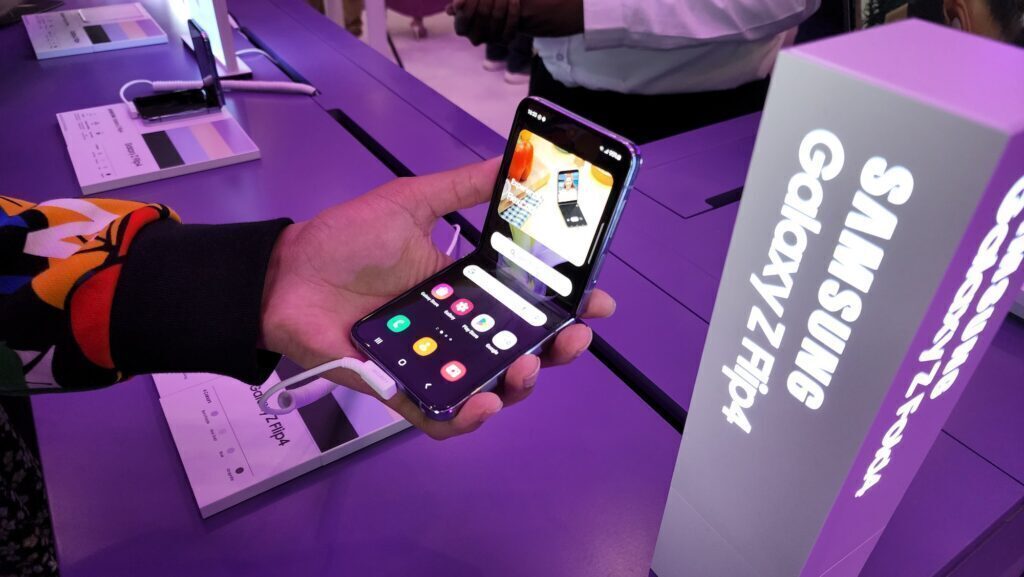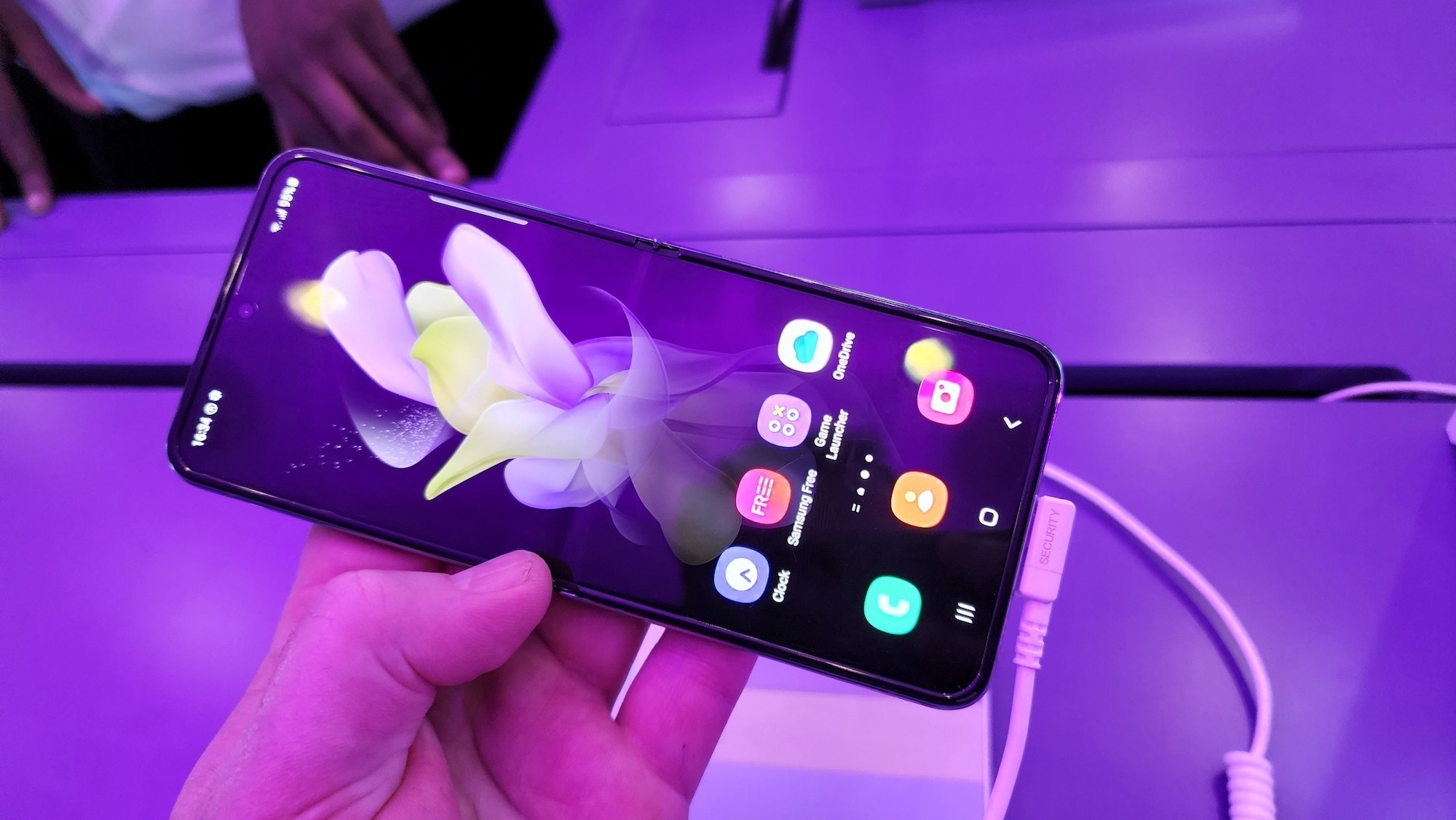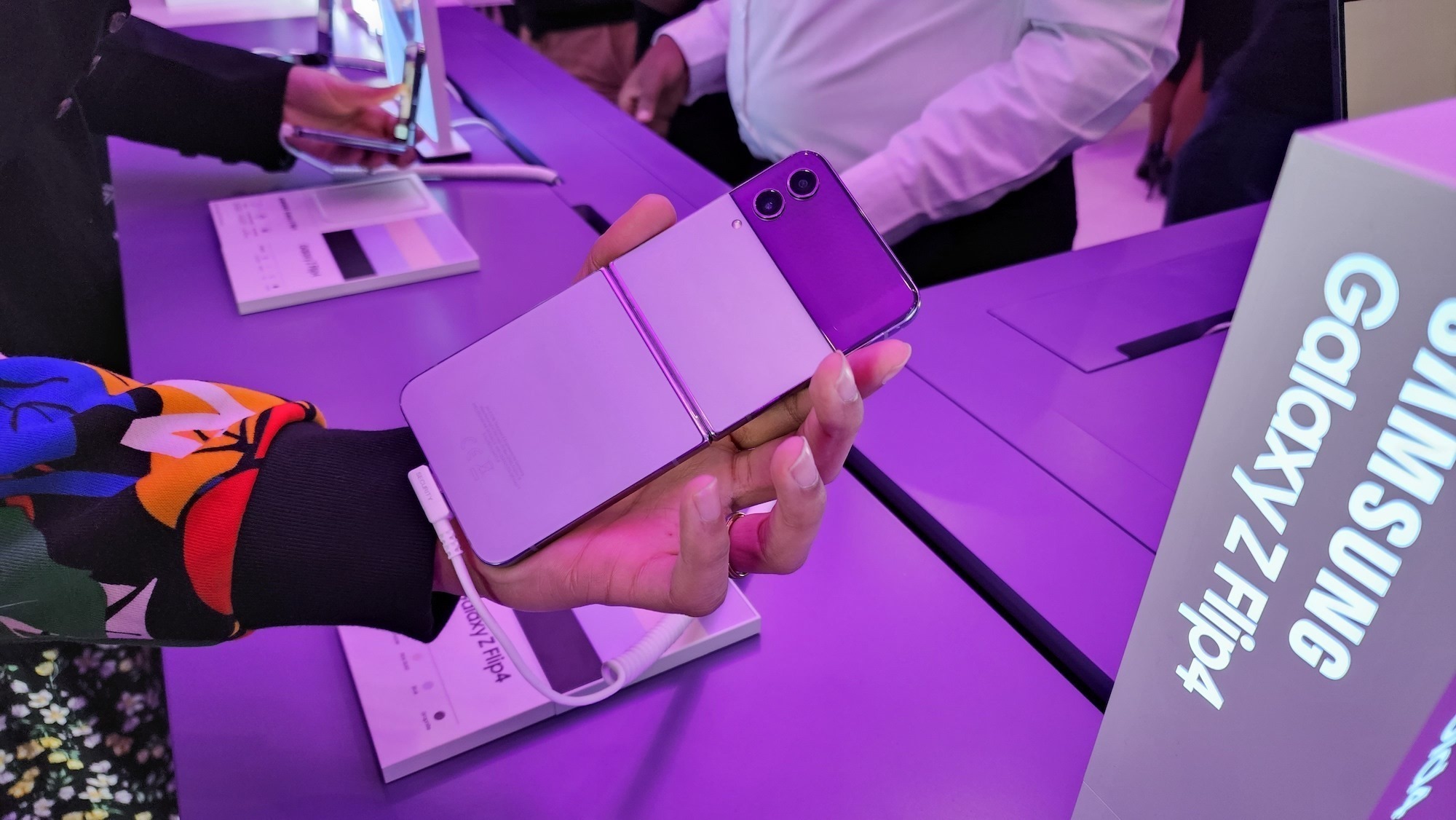Samsung’s Galaxy Flip 4 smartphone might only be landing in South Africa in September this year, but we’ve already taken a brief look at it. At the close of the company’s Unpacked stream yesterday, we were given some time to muck around with Samsung’s newest foldables.
So… should you drop everything and buy one? That’s not really a question we can answer, yet. But owning a Samsung-made folding smartphone is more attractive than ever, based on our brief time with the device.
First impressions
In terms of design, there really isn’t much changed between the Flip 3 and Flip 4. Layout and dimensions are almost exactly the same. There’s still a narrow outer display. It’s still charged via USB-C and has cameras and buttons in the same positions as before. So it’s the same phone. Right?
Well… not if you believe Samsung’s marketing. All of the changes this year are under the skin. The South Korean company has worked on making its folding phones more durable. The outer display is tougher. The inner display has also undergone changes, at least on the Fold front. The frame uses a higher grade of aluminium. But these are all differences that can’t immediately be assessed. Not in the short term.
Same stuff…
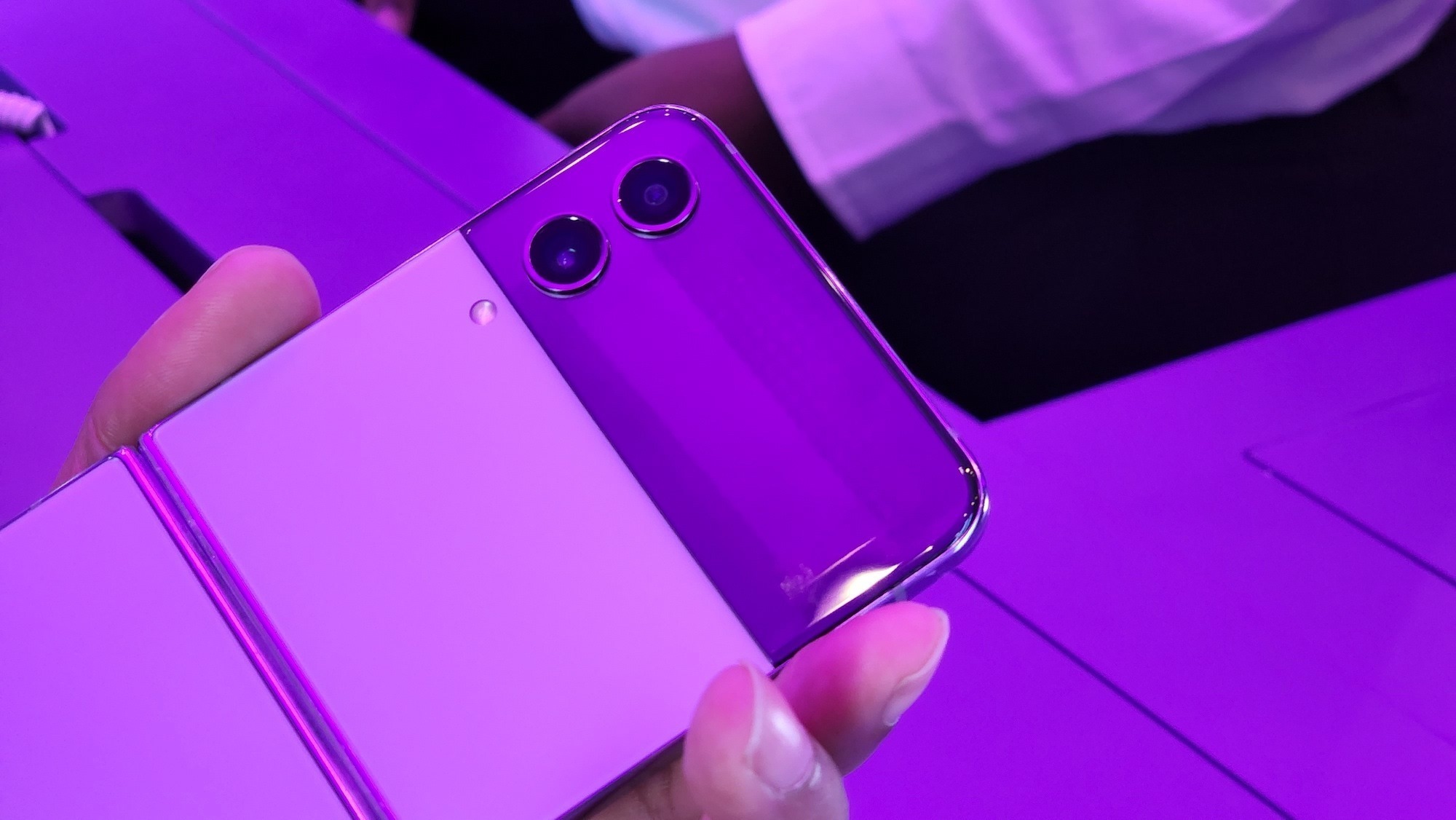 Let’s take a look at what hasn’t changed. There’s a fair amount of that. The Galaxy Flip 4’s 6.7in display is essentially the same as its predecessor, right down to the 1,080 x 2,640 resolution. It seems a little more durable than before, based on a few minutes of actively pressing the screen against its backing. A longer-term exploration of that aspect will come just as soon as we can arrange it.
Let’s take a look at what hasn’t changed. There’s a fair amount of that. The Galaxy Flip 4’s 6.7in display is essentially the same as its predecessor, right down to the 1,080 x 2,640 resolution. It seems a little more durable than before, based on a few minutes of actively pressing the screen against its backing. A longer-term exploration of that aspect will come just as soon as we can arrange it.
The cameras are also almost identical. There are two 12MP lenses — an f/1.8 main and f/2.2 ultrawide — in the rear of the phone. The front-facing f/2.4 10MP lens is an exact match for that found in the Galaxy Flip 3. RAM loadout (8GB) is a match for the older phone. So are the Flip 4’s audio capabilities. So what has really changed here?
…different day
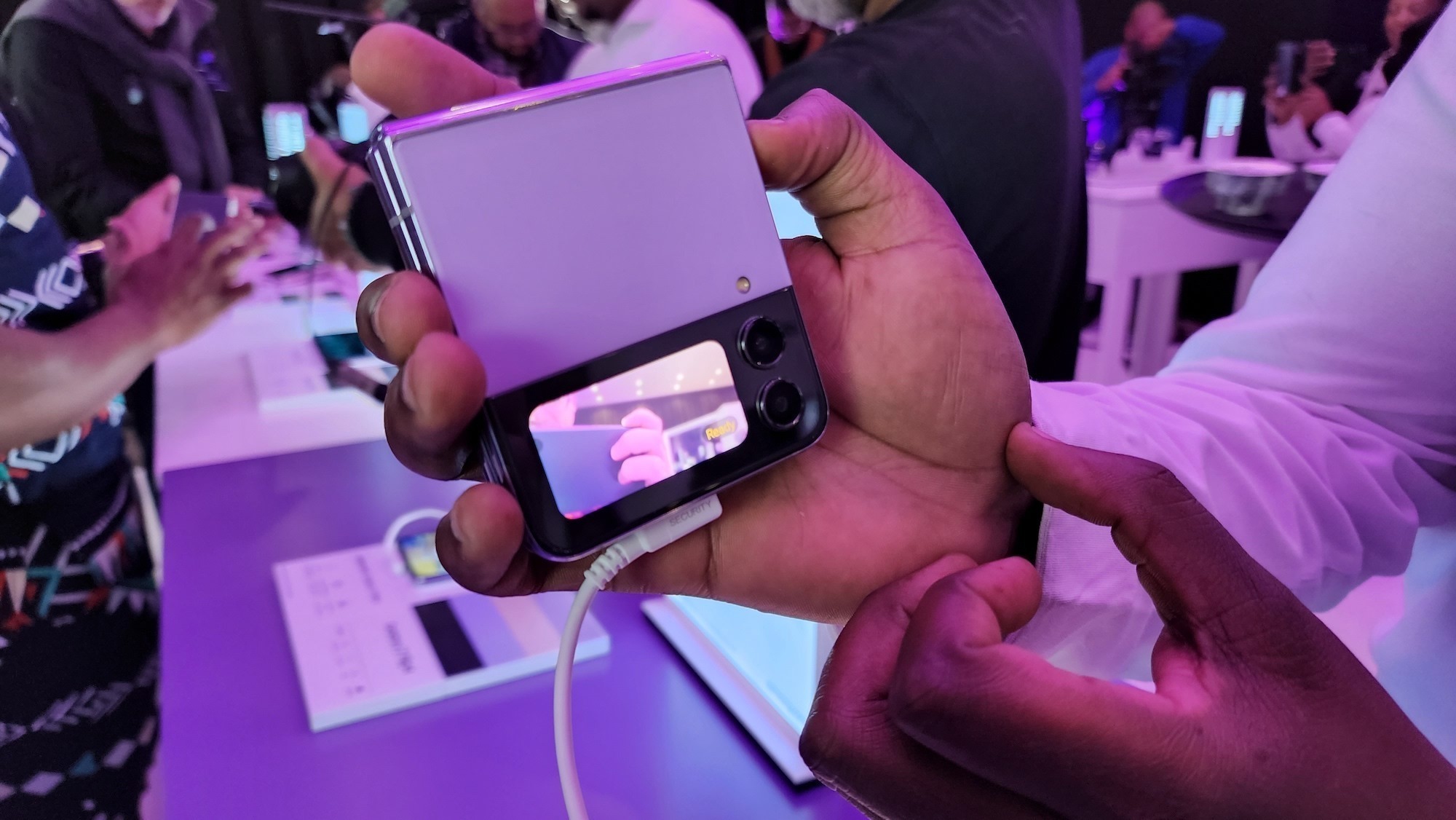 A few things. A Snapdragon 8+ Gen 1 processor ramps up the Galaxy Flip 4’s speed. There are more storage options, though it’s not certain which ones South Africa will see at launch. The other changes are a little more granular than we’d like from a new generation phone. It’s a shade heavier, at 187 grams. It’s packing a larger 3,700mAh battery than its older sibling. It’s also got 25W fast charging, over 15W from the last generation. But these are all things impossible to assess in five or ten minutes.
A few things. A Snapdragon 8+ Gen 1 processor ramps up the Galaxy Flip 4’s speed. There are more storage options, though it’s not certain which ones South Africa will see at launch. The other changes are a little more granular than we’d like from a new generation phone. It’s a shade heavier, at 187 grams. It’s packing a larger 3,700mAh battery than its older sibling. It’s also got 25W fast charging, over 15W from the last generation. But these are all things impossible to assess in five or ten minutes.
There’s also a small, but possibly significant difference on the camera front. The Flip 4 might have a similar arrangement as last year, but the main sensor uses 1.8µm pixels, as opposed to 1.4µm in the Flip 3. Will it make a massive difference to camera performance? That’s hard to tell in a mostly-purple room, but it’ll probably translate into better low-light skills at the very least.
What has changed is how the phone’s outer screen functions. It’s possible to use the outer screen as a viewfinder while taking photos of yourself. Better in-hand social media shots with less risk of dropping your phone? Sure, we’ll give them that one. The whole outer display interface has improved dramatically, but we reckon Samsung could drop that into the Flip 3 as a software update if they wanted.
Galaxy Flip 4 initial verdict
At this point, it’s impossible to make a fair call about Samsung’s new Galaxy Flip 4. On the surface, it doesn’t look like much has changed at all. On paper, those changes are also relatively minor. Some might possibly be a game-changer for the phone, but we’re not seeing it right now. Maybe we don’t have to. The Galaxy Flip 3 was an excellent device and this looks like a refinement of what was already working. That has the downside (for Samsung) of not making it especially compelling if you’ve already got a Flip 3. But it could be worth checking out if you haven’t explored Samsung’s folding smartphones. Keep an eye out for a full review, a little closer to launch day.

